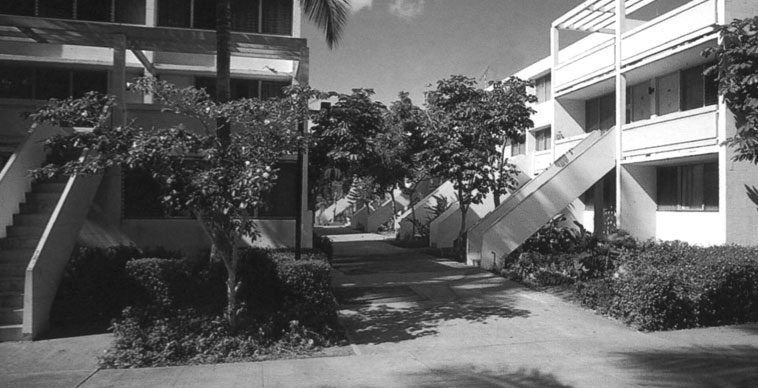At a job fair at Indiana University in Bloomington in the fall of 2006, I was introduced to an AmeriCorps program that partnered college graduates with community development corporations (CDCs) in Indianapolis. I had just graduated and was struggling to find a job that I was interested in and qualified for. The program initially interested me because it was a chance to gain valuable professional experience, which would enhance my resume. At the same time, I would have the opportunity to work on projects that would have a positive effect on the community, which was something that was important to me as part of a job.
I interviewed with a couple of the CDCs, and during the second round, I met Christie Gillespie, the executive director at the Indiana Association for Community Economic Development (IACED). Gillespie explained that an AmeriCorps member at IACED would conduct research on membership and on federal and state policy. As a double major in sociology and political science, I felt that this opportunity would allow me to use the skills and knowledge that I had gained in college, as other job possibilities that I had found post-graduation had not.
It’s no secret that CDCs are continually challenged in their ability to serve communities effectively. Many CDCs are losing experienced staff as the baby boomers retire, and the organizations are having a hard time attracting qualified replacements. Cuts to Community Development Block Grant and Home Investment Partnership programs add to capacity problems. As a result, CDCs are finding it increasingly necessary to devise new ways to make a difference in their service areas.
The Indianapolis Coalition for Neighborhood Development (ICND) is no exception. ICND is an association of neighborhood-based community development corporations, which represents CDCs from around the city. One of the problems local CDCs had was finding money to hire staff to perform the many tasks necessary to achieve specific neighborhood goals. In 2005, ICND began a student internship program that would introduce aspiring practitioners to the community economic development field in the hopes of creating new leaders. As the coalition was designing the internship, it learned about an AmeriCorps program that supports organizations that address community needs statewide. The program gives its members (primarily recent college graduates) an opportunity for professional development in faith-based and community groups. AmeriCorps members provide direct service to address a community’s unmet needs.
Past activities have included tutoring elementary- and middle-school children, providing services to the elderly and disabled, and assisting low-income citizens with legal matters. ICND signed on with the AmeriCorps program to build the capacity of Indianapolis CDCs and to gain staffers who can work on everything from research to economic improvement districts and get things done at a fraction of the cost. AmeriCorps members receive a small living stipend during their year of service. The stipend is covered by funds contributed by participating CDCs and matched by the AmeriCorps program.
ICND dubbed its one-year internship program AmeriCorps L.D.R.S. (which stands for “Learning about community development, Developing neighborhoods by leveraging human resources, Recruiting new leaders, and Sustaining communities”). Nine CDCs around Indianapolis were chosen as host sites for the AmeriCorps members who would work on projects the organizations wanted to address, but didn’t have the staff to do so.
Initially, as a new member who signed on for ICND’s AmeriCorps L.D.R.S. program, I worried about my lack of knowledge about community economic development and how it would affect the work I was going to do. But ICND holds a three-day training course on community development covering the basics of CDCs as well as information specific to Indianapolis neighborhoods. ICND also sets up mandatory monthly member meetings and trainings to provide in-depth information on issues in community development such as funding, addressing abandoned properties, and volunteer organizing. With this kind of support, I was confident that the other members and I would have the opportunity to learn the different aspects of community economic development.
Our work doesn’t simply entail answering phones, making copies, or running errands. Each of us receives a work plan detailing the goals we should achieve during our year of service. We are free to explore different methods of achieving goals for our host site, as well as pursuing additional projects that could benefit the neighborhoods in which we work. My AmeriCorps LDRS colleagues and I, some of whose stories follow, have been at our host sites since December 2006 and have accomplished a great deal in a few short months.



Comments